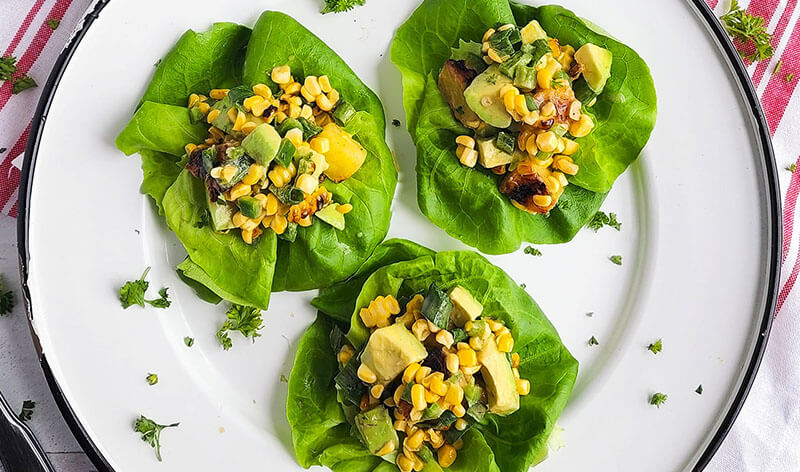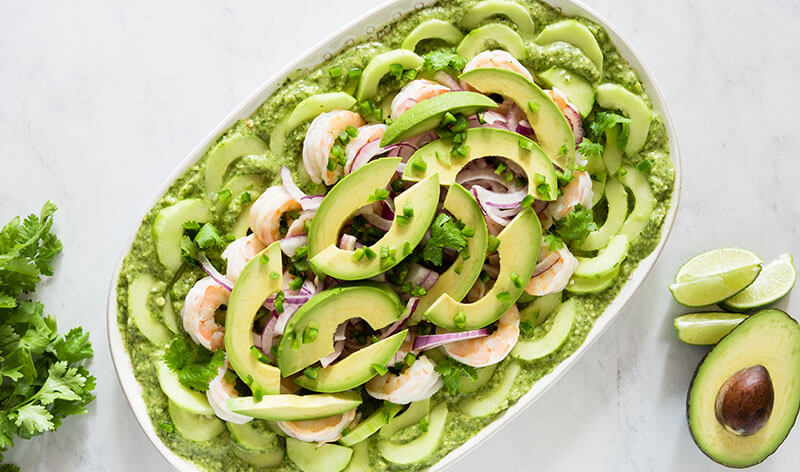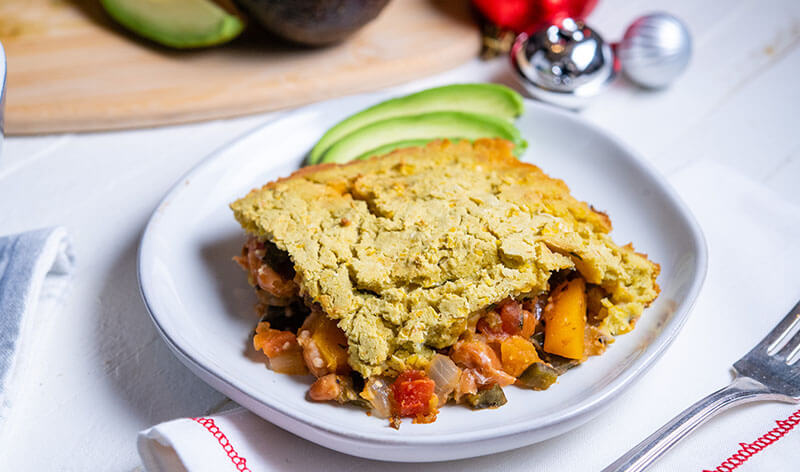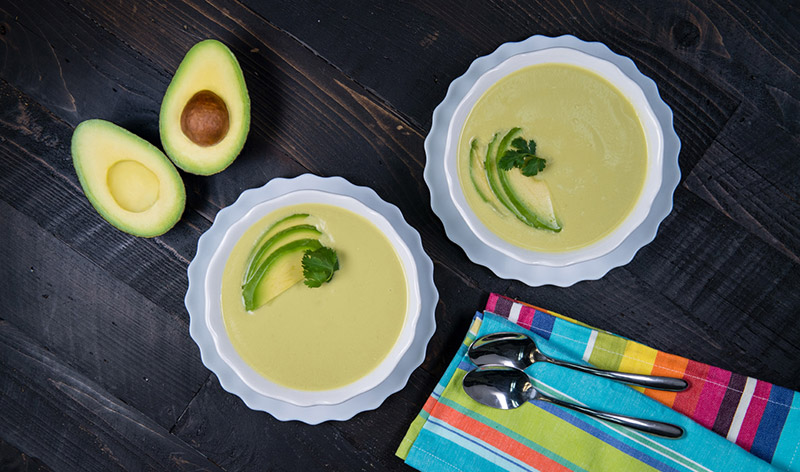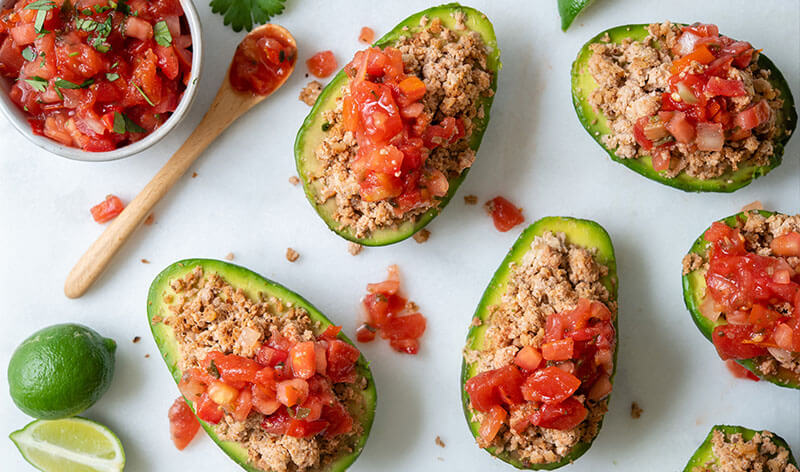Thanks to their versatility, delicious flavor, and impressive nutritional profile, avocados have earned their place as a staple in healthy eating plans. But when it comes to weight loss, many people wonder if this fruit is a friend or foe. Most Americans already know avocados contain healthy fats but may not know the role healthy fats —and other nutrients in avocados, play in a weight-loss diet.
In this article, we’ll explore how avocados fit into a weight-loss plan, bust common myths, and provide tips for incorporating this healthy and delicious fruit into your everyday meals.
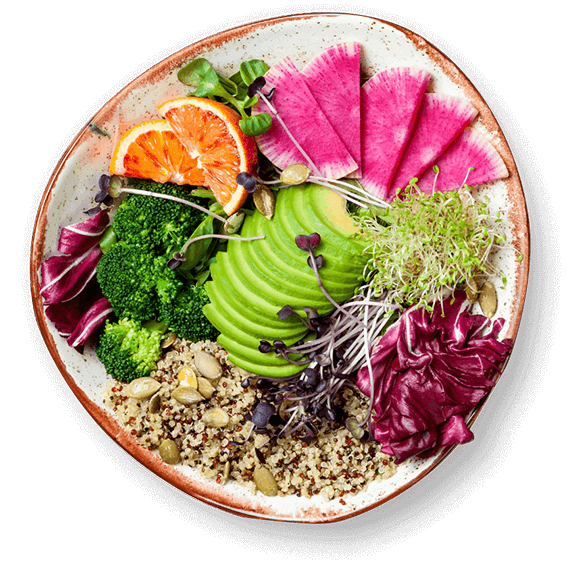
The Nutritional Makeup of Avocados
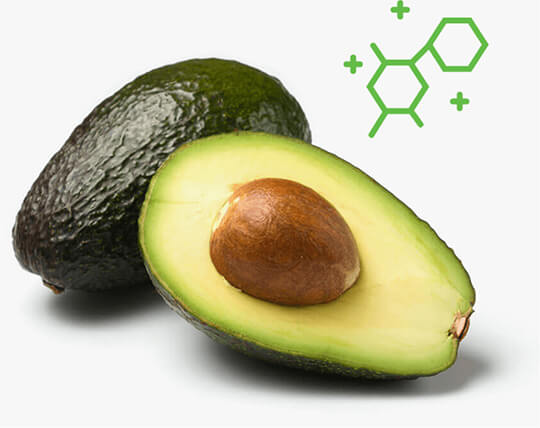
Avocados are a valuable addition to a weight-management diet. They are mainly known for their healthy monounsaturated fats, which help provide sustained energy and support heart health. Monounsaturated fats can help reduce bad cholesterol (LDL) levels while maintaining good cholesterol (HDL) levels. Additionally, these healthy fats can help you feel fuller for longer, reducing the likelihood of overeating and supporting weight loss efforts.
Another standout nutrition attribute of avocados is their fiber content. With 3 g of fiber per 50 g serving, avocados can promote feelings of fullness, which can help curb overeating. Fiber is also essential for gut health, as it aids digestion and reduces constipation, which is integral to an effective weight-loss plan.
Avocados are also low in carbohydrates, unlike most fruits. With just 4 g of carbohydrates per 50 g serving, they’re an excellent option for those following low-carb or keto diets. With this unique combination of healthy fats, fiber, and low carb content, avocados offer a well-rounded nutritional profile that aligns with weight-loss goals.
How Avocados Help with Weight Loss
Beyond helping curb hunger, avocados contain essential nutrients that can promote balanced health. For instance, avocados contain 250 g of potassium per serving, which helps regulate fluid balance by working with sodium to regulate water distribution in and out of cells, and muscle function by helping transmit nerve signals that trigger muscle movement, including heart muscle activity, which can be particularly beneficial during increased physical activity.
Avocados also contribute:
- 4% DV of Vitamin C
- 6% DV of Vitamin E per serving, which can help support immune health and skin repair;
- While its 15 mg of magnesium can aid in energy production, ensuring your body stays nourished even while in a calorie deficit.
Avocados can be included in most meal plans, from high-protein and fat to low-carb diets and everything in between. No matter your nutritional needs, there’s a way to prepare avocados that will fit perfectly into your diet plan.
It’s time to debunk the myth: avocados are not inherently fattening.
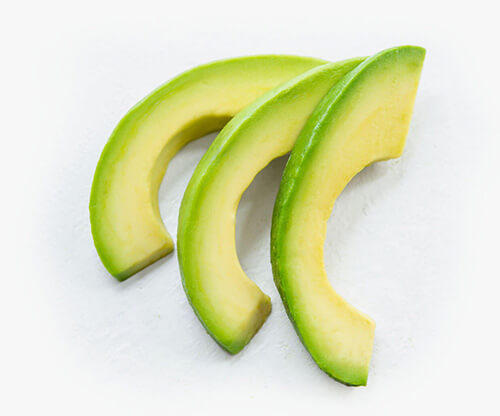
Is Avocado Fattening?
Even though you may do a double-take at the 8 g of fat per 50 g serving, the fats in avocados are primarily heart-healthy monounsaturated fats, with 5 g per serving. The misconception arises from mistaking healthy fats with the harmful saturated fats found in processed foods.
When it comes to weight loss and avocados, —like with all foods, portion control is key; eating too much can exceed your daily caloric needs. A serving of avocado is about one-third of a medium avocado, and provides 80 calories.
Incorporating this amount into meals or snacks is a great way to keep track of your overall calorie intake and enjoy the many health benefits without overdoing it.
Avocados and Different Diet Plans
Avocados are a versatile ingredient that can complement a variety of diet plans. Whether you’re following a low-carb regimen or a plant-based lifestyle, avocados can provide essential nutrients and make your meals more satisfying and flavorful.
Keto Diet
If you’re following a ketogenic diet, avocados are a must-have. Their 5 g of monounsaturated fat, plus 1 g of polyunsaturated fat content perfectly fits the keto focus on low-carb, high-fat foods. With a total of 6 g of healthy fats, and just 4 g of carbs per serving, avocados make an excellent base for keto-friendly dishes like guacamole or nutritious smoothies.
Plus, they contain 250 mg of potassium per serving, which can help you combat keto flu symptoms like fatigue and muscle cramps.
Low-Calorie Diets
If you’re on a low-calorie diet, avocados can still fit into your plan. Though they are not a low-calorie food, the fiber and healthy fats in avocados can help you feel fuller. A single serving — about one-third of a medium avocado — provides 80 calories alongside 6 g of healthy fats, 3 g of fiber, 15 mg of magnesium, 4 mg of Vitamin C, and 10% of your daily folate.
Adding avocado to your salad, soup, or toast can help you stay full and energized without exceeding your calorie goals.
Plant-Based or Vegan Diets
When you’re on a plant-based or vegan diet, it’s essential to prioritize eating foods with high nutritional value to compensate for any lack of nutrients from animal fats. Luckily, avocados are a creamy, versatile alternative to animal-based fats, ideal for anyone following a plant-based diet.
You can also eat them in any meal, so you won’t have to skip out on essential nutrients when eating avocados in a plant-based or vegan diet.
Incorporating Avocados into Your Weight Loss Plan
Incorporating avocados into your daily meals is easy. Start your morning with a slice of whole-grain toast topped with mashed avocado and a sprinkle of chili flakes for a nutritious breakfast. Add avocado slices to your salad or sandwich at lunch to boost satiety. For dinner, try blending avocado into soups or using it as a topping for lean protein dishes like grilled chicken or salmon.
To keep your meals balanced, pair avocados with foods high in protein and fiber. For example:
- Combine diced avocado with black beans, tomatoes, and lime for a flavorful salad or taco topping.
- Use avocado in place of mayonnaise for a creamy, lower-calorie sandwich spread that can help you reduce your intake of saturated fats.
- Make a simple avocado-based dressing to drizzle over greens and roasted vegetables.
- For a filling snack, blend avocado into a smoothie with spinach, unsweetened almond milk, a banana, strawberries, and a scoop of protein powder.
Pairing avocados with other healthy ingredients will create meals that taste good and align with your weight-loss plan.

Avocados are the perfect food for those following a keto diet, enjoying plant-based meals, or looking to stay satisfied with a low-calorie plan. From their 6 g of heart-healthy fats to their 3 g of fiber per serving, they make a delicious and functional addition to your daily routine.
Find other creative, and easy-to-make avocado recipes, in our recipe catalog, where you can find inspiration for every occasion or dietary need.




